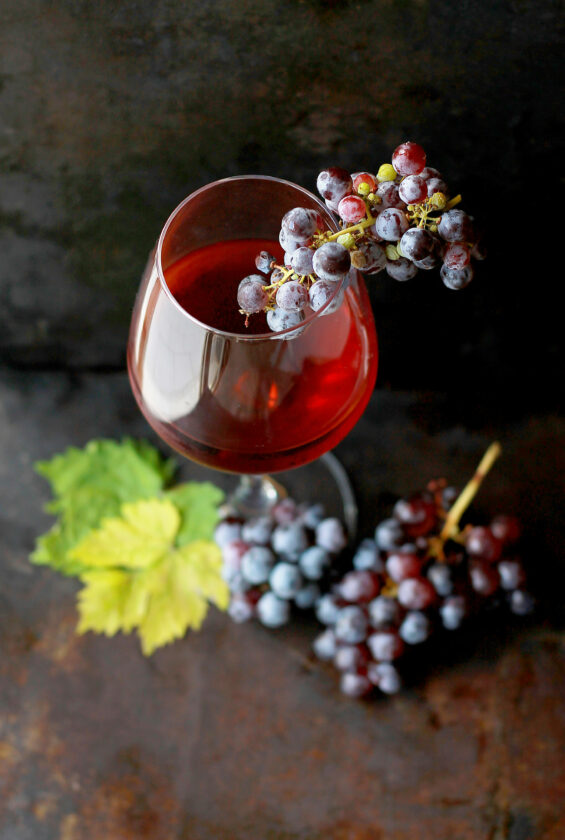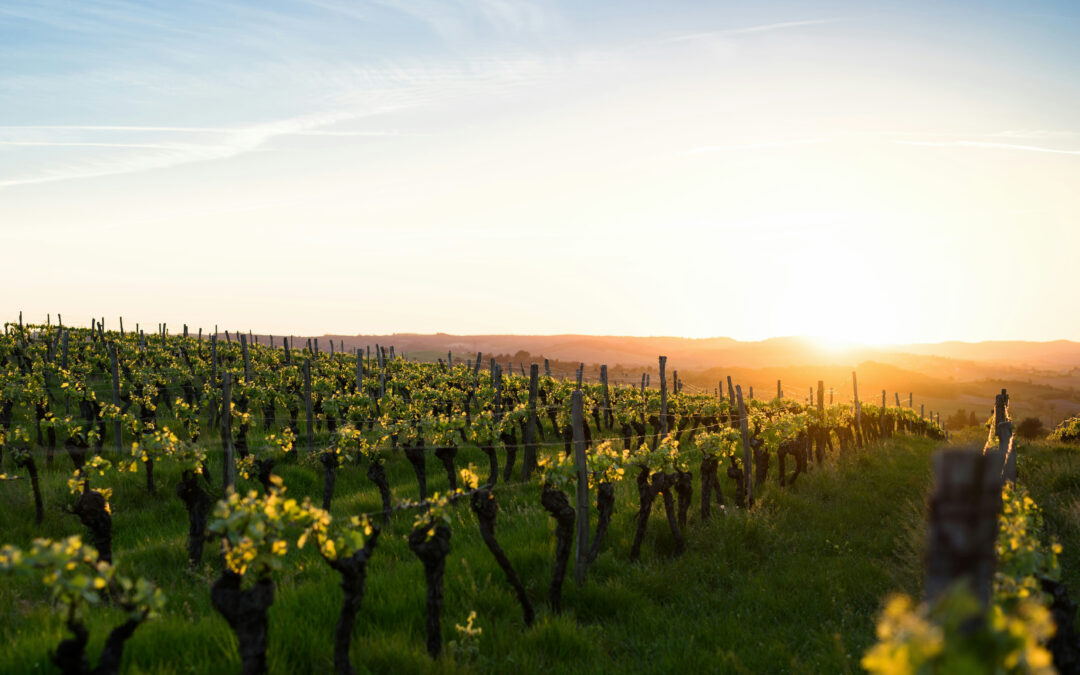Drink Up!
What are natural wines? Though many assume that natural wines and organic wines are the same, that’s not quite true. All natural wines are organic wines, but not all organic wines are natural wines. I know. It’s confusing even for those in the wine industry! Let’s discuss further.
The principal philosophy of natural wine is summed up in two words: minimal intervention. Grapes are allowed to grow and mature naturally in the vineyard, with no chemical pesticides, herbicides or fertilizers. Organic farming practices are used, and many producers have also adopted the biodynamic approach to vineyard management. So, yes, natural wines are organic wines. However, there is more.
To protect the grapes from damage, most natural wine producers hand-harvest their grapes rather than utilize equipment. Spontaneous fermentation is employed, utilizing only the yeast present on the grapes, rather than using commercial yeast. Minimal or no sulfites are added to natural wine. That does not mean there are no sulfites. After all, grapes naturally contain sulfites. Natural wine producers either do not add additional sulfites or only add what is necessary to preserve the flavor and shelf life of the wine. Also, natural wine producers do not add sugar or other additives to enhance the flavor, color, or texture of the wine. The FDA allows as many as 70 additives in wine production in the US; the EU allows about 60. Natural wine producers do not utilize any. Finally, many natural wine producers do not filter the wine. This process is called “fining” in wine-speak, and the objective is to clarify the wine. As a result, many natural wines appear cloudy. The goal of natural winemakers is to allow the grapes and the wine made from those grapes to express the terroir in which they were grown. This is the minimal intervention philosophy.
You may be thinking that any reputable winemaker, natural or otherwise, attempts to produce a wine that expresses the terroir, the sense of place, of the wine. Many non-natural winemakers, especially organic and/or biodynamic practitioners, utilize a minimal intervention approach. But rarely do they take the concepts as far as natural winemakers. There is an Italian phrase — “Il dolce far niente!” — that translates to “the sweetness of doing nothing.” That concept embodies the natural wine philosophy: Nothing is added, and nothing is taken away. Natural wine producers attempt to produce wines that are “raw” and “alive.”

It is important to note that natural wines have no certifying agency, such as the USDA National Organic Program (NOP) for organic wines or the Demeter USA for biodynamic wines. As such, there are no established standards by which natural wines are produced. Instead, it is a philosophy based on the principle of minimal intervention as detailed above.
Is natural wine right for you? Only you can answer that question. In my opinion, the main benefit of natural wine is that they are all organic. If you buy into the natural wine philosophy or have had sensitivity to wine in the past, it is worth a try. In addition, if you simply enjoy trying new wines, there is no harm in picking up a few bottles. Read on for a few that I have tried and would recommend.
Although they have been produced for more than 6,000 years, orange wines have become popular in recent years. Christine Orange is a natural orange wine from Austria, made primarily from the Chardonnay and Sauvignon Blanc grapes. Winemaker Christina Nitzl has produced a very enjoyable wine with notes of tangerine, apricot and peach, with a touch of white pepper and a notable minerality. This wine pairs well with curried Thai dishes, grilled fish or chicken, as well as shellfish.
Field Recordings ‘Skins’ White Blend is another natural orange wine from the Central Coast region of California. Skins is a blend of Chenin Blanc, Pinot Gris, and Albariño grapes. This medium-bodied wine has notes of dried apricot, orange zest and white flowers with hints of ginger and crushed herbs. The wine’s fresh, crisp acidity leads to a dry, mineral-driven finish. Pair this with cheese and charcuterie, or with vegetarian dishes, pasta dishes, and seafood.
From the Languedoc-Roussillon region of southern France, Domaine Rimbert has produced a lovely natural rosé made from Pinot Noir, Syrah, and Grenache. Rimbert ‘Petit Cochon Bronze’ Rosé features blood orange and red berry flavors, complemented with a generous minerality. This wine pairs perfectly with spicy Indian food as well as barbecued kebabs. As you will see from the label, Petite Cochon Bronze means “The Tan Little Pig.”
Another natural rosé is Las Jaras Superbloom from Mendocino, California, named for the outburst of wildflowers that occurs in the desert during unusually wet rainy seasons. This is a complex wine, composed of a blend of red and white varietals, such as Grenache Noir, Grenache Blanc, Marsanne, Vermentino, and Viognier. The red grapes give the wine a spicy nose and plenty of texture, while the white grapes express beautiful, salted watermelon and rhubarb notes, plus a clean, mineral finish. Vermentino and Viognier give acidity to the final product.
Glou Glou is a natural red wine from Las Jaras Wines that blends Zinfandel, Carignan, Sangiovese, and Valdiguié. This is a chillable red wine that is perfect with Friday night foods like pasta with red sauce, pizza, burgers or tacos. You will get the flavors of red plum, pomegranate and cocoa powder, with a touch of spiciness on the finish. This one is a crowd-pleaser.
If you are looking for a sweeter red wine, try Las Jaras Big Brule, a blend of Carignan, Zinfandel, and Petite Sirah. This semi-sweet red features flavors of dark cherry, plum and blackberry as well as hints of cocoa nibs and allspice.
If you are the wine adventurist that I am, I hope this article has expanded your understanding of natural wines and encourages you to give them a try. As always, contact me with questions at dsetley@passionvines.com or stop into the store. Until next time, keep it natural and happy wining!
David Setley is enjoying his retirement from higher education as a wine educator and certified sommelier at Passion Vines in Somers Point, New Jersey.















